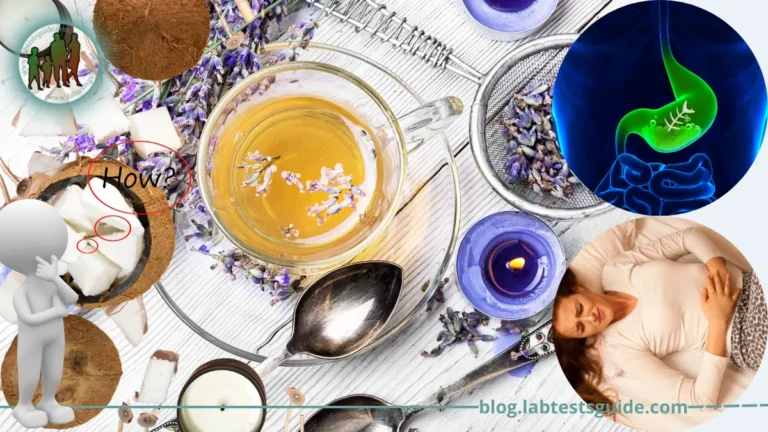Dandruff is a common scalp condition that affects many individuals, causing flakes of dead skin to appear on the scalp and often leading to itchiness and discomfort. While there are numerous commercial products available to address dandruff, some people prefer to explore home remedies for relief. Home remedies can be a natural and cost-effective way to manage dandruff, often using readily available ingredients. In this article, we will explore some of the best home remedies for dandruff, highlighting their potential benefits and how to use them effectively.

It’s important to note that while these remedies may provide relief for some individuals, results may vary, and it’s advisable to consult a healthcare professional if the condition persists or worsens. Let’s delve into the world of home remedies and discover natural solutions to combat dandruff.
Essential Oils:
Here are some popular natural remedies for dandruff.
- Tea Tree Oil: Tea tree oil has antifungal properties that can help combat the fungal infections often associated with dandruff. It can reduce inflammation, itching, and flaking. Mix a few drops of tea tree oil with a carrier oil, such as coconut oil or jojoba oil, and massage it into your scalp. Leave it on for about 30 minutes before rinsing thoroughly.
- Lemon Oil: Lemon oil has antimicrobial and astringent properties that can help combat dandruff and regulate scalp oil production. It is important to note that lemon oil is highly concentrated, so it should be used sparingly and always diluted in a carrier oil before applying to the scalp. Avoid using lemon oil if you have any cuts or open sores on your scalp, as it may cause irritation.
- Rosemary Oil: Rosemary oil has antimicrobial and anti-inflammatory properties that can help reduce dandruff symptoms. It can also improve scalp circulation and promote hair growth. Mix a few drops of rosemary oil with a carrier oil and massage it into your scalp. Leave it on for some time before rinsing.
- Lavender Oil: Lavender oil has antimicrobial and soothing properties that can help calm an irritated scalp. It may also help reduce scalp inflammation and itching. Mix a few drops of lavender oil with a carrier oil and massage it into your scalp. Leave it on for some time before rinsing.
- Eucalyptus Oil: Eucalyptus oil has antifungal and soothing properties that can provide relief from dandruff and scalp itchiness. It can also promote a healthier scalp environment. Dilute a few drops of eucalyptus oil in a carrier oil and massage it onto your scalp. Leave it on for a while before rinsing.
- Peppermint Oil: Peppermint oil has a cooling effect and can help relieve scalp itching and irritation. It also has antimicrobial properties that can contribute to a healthier scalp. Dilute a few drops of peppermint oil in a carrier oil and massage it onto your scalp. Leave it on for some time before rinsing.
- Coconut Oil: Coconut oil is known for its moisturizing properties, which can help soothe a dry and itchy scalp. Warm up some coconut oil and massage it into your scalp. Leave it on for at least an hour or overnight, then wash your hair as usual. Repeat this process regularly to see the best results.
- Neem Oil: Neem oil has antimicrobial and antifungal properties that can help alleviate dandruff caused by fungal infections. Mix a few drops of neem oil with a carrier oil and apply it to your scalp. Leave it on for 30 minutes before washing it out.
When using essential oils, it’s crucial to dilute them properly in a carrier oil before applying them to your scalp, as they are highly concentrated and can cause skin irritation if used undiluted. Conduct a patch test before applying any essential oil to ensure you’re not allergic to it. Additionally, if you have any underlying medical conditions or are pregnant or breastfeeding, it’s advisable to consult with a healthcare professional before using essential oils.
Herbal Remedies:
Here are some herbal remedies that can be beneficial for dandruff.
- Rosemary: Rosemary has antimicrobial and anti-inflammatory properties that can help alleviate dandruff symptoms. Brew a strong tea using rosemary leaves and let it cool. Use it as a final rinse after shampooing your hair. Alternatively, mix a few drops of rosemary essential oil with a carrier oil and massage it into your scalp. Leave it on for some time before rinsing.
- Neem: Neem is known for its antifungal and antibacterial properties, making it effective against dandruff caused by fungal infections. Use neem oil or neem leaf extract and apply it to your scalp. Leave it on for about 30 minutes before rinsing thoroughly. Repeat this process regularly to see results.
- Holy Basil (Tulsi): Holy basil has antimicrobial properties that can help combat dandruff and soothe the scalp. Crush a handful of holy basil leaves and extract the juice. Apply the juice to your scalp, leave it on for about 30 minutes, and then wash it off. Repeat this remedy regularly.
- Witch Hazel: Witch hazel has astringent and antifungal properties that can help reduce dandruff and soothe the scalp. Mix witch hazel extract with water and apply it to your scalp using a cotton ball. Leave it on for some time before rinsing.
- Chamomile: Chamomile has anti-inflammatory properties that can soothe an irritated scalp. Brew a strong chamomile tea, let it cool, and use it as a final rinse after shampooing your hair. It can help calm the scalp and reduce dandruff symptoms.
- Thyme: Thyme has antifungal properties that can help combat dandruff caused by fungal infections. Prepare a thyme-infused oil by steeping thyme leaves in carrier oil, such as olive oil, for a few weeks. Strain the oil and massage it into your scalp. Leave it on for some time before washing it out.
- Fenugreek: Fenugreek seeds have moisturizing and anti-inflammatory properties that can help relieve dryness and itching associated with dandruff. Soak fenugreek seeds overnight, grind them into a paste, and apply it to your scalp. Leave it on for about 30 minutes before rinsing thoroughly.
Remember to perform a patch test before using any herbal remedy to ensure you’re not allergic to any of the ingredients. It’s also important to be consistent and patient when using herbal remedies, as they may take time to show results. If your dandruff persists or worsens, consult a healthcare professional for further evaluation and guidance.
Natural Home Remedies:
- Lemon Juice: The acidity of lemon juice helps balance the pH of the scalp and reduce dandruff. Apply fresh lemon juice directly to your scalp, massage it gently, and let it sit for 5-10 minutes. Rinse thoroughly afterward. Be cautious of any cuts or open sores on your scalp, as lemon juice may cause a stinging sensation.
- Apple Cider Vinegar (ACV): ACV helps restore the pH balance of the scalp and has antimicrobial properties. It can also reduce scalp itching and flaking. Mix equal parts of ACV and water and use it as a final rinse after shampooing your hair. Leave it on for a few minutes before rinsing thoroughly. Be cautious as ACV can cause a stinging sensation if it comes into contact with any open cuts or sores on the scalp.
- Aloe Vera: Aloe vera has soothing and moisturizing properties that can alleviate scalp irritation and reduce dandruff. Apply fresh aloe vera gel directly to your scalp, leave it on for 15-20 minutes, and then rinse it off. You can also use aloe vera-based shampoos or conditioners.
- Baking Soda: Baking soda acts as an exfoliant and can help remove dead skin cells from the scalp. It also helps in balancing the pH level of the scalp. Wet your hair and rub a handful of baking soda onto your scalp. Massage gently for a few minutes, then rinse thoroughly. Follow with a light conditioner.
Remember, natural remedies may take time to show results, and what works for one person may not work for another. It’s essential to be consistent and patient when using natural remedies for dandruff. If your condition persists or worsens, it’s advisable to consult a healthcare professional for further evaluation and guidance.
When to Seek Professional Help:
Here are some indications that you should consult a healthcare professional.
- Severe or Persistent Dandruff: If your dandruff does not improve or becomes worse despite trying home remedies and over-the-counter treatments, it’s recommended to seek professional advice. A dermatologist can assess your condition and provide appropriate medical interventions.
- Intense Itching and Irritation: If you experience intense itching, redness, or irritation on your scalp, it may indicate a more severe scalp condition. A healthcare professional can evaluate your symptoms and determine the underlying cause.
- Scalp Infections: If you develop signs of a scalp infection, such as swelling, pus-filled sores, or excessive pain, it’s crucial to see a healthcare professional promptly. Scalp infections require medical attention and may require prescription medications to resolve.
- Hair Loss: If you notice excessive hair loss along with dandruff, it’s advisable to consult a healthcare professional. They can evaluate your scalp and hair health and determine if there are underlying factors contributing to both issues.
- Impact on Quality of Life: If dandruff significantly affects your quality of life, causing emotional distress, social discomfort, or interfering with daily activities, it’s important to seek professional help. A healthcare professional can provide guidance and recommend appropriate treatments to alleviate your symptoms.
- Uncertainty about the Diagnosis: If you are unsure whether your condition is dandruff or if you have tried multiple treatments without success, it’s best to consult a healthcare professional for a proper diagnosis. They can differentiate between dandruff and other scalp conditions and recommend suitable treatments.
- Remember, healthcare professionals, such as dermatologists or trichologists, have the expertise to diagnose and treat scalp conditions effectively. They can provide personalized advice and prescribe medications or specialized treatments if necessary. Seeking professional help is particularly crucial when your symptoms are severe, persistent, or affecting your overall well-being.
conclusion:
In conclusion, dandruff can be a bothersome scalp condition, but there are various home remedies, natural solutions, and professional interventions available to help manage it. Home remedies like tea tree oil, apple cider vinegar, aloe vera, and coconut oil can provide relief for some individuals. Herbal remedies such as rosemary, neem, and chamomile have also been found to be beneficial. Essential oils like tea tree oil, lavender oil, and peppermint oil have antimicrobial properties that can help combat dandruff.
While home remedies and natural solutions can be effective, it’s important to remember that results may vary, and what works for one person may not work for another. If your dandruff persists, becomes severe, or is accompanied by intense itching, scalp infections, hair loss, or a significant impact on your quality of life, it’s advisable to seek professional help from a healthcare professional or dermatologist. They can provide a proper diagnosis, evaluate the underlying causes, and recommend appropriate medical interventions or treatments tailored to your specific needs.
Maintaining a healthy scalp and practicing good hygiene, such as regular shampooing with gentle, dandruff-fighting shampoos, can also contribute to managing dandruff effectively. Remember to be patient, consistent, and open to professional guidance when needed. With the right approach and support, you can find relief from dandruff and maintain a healthy scalp.






